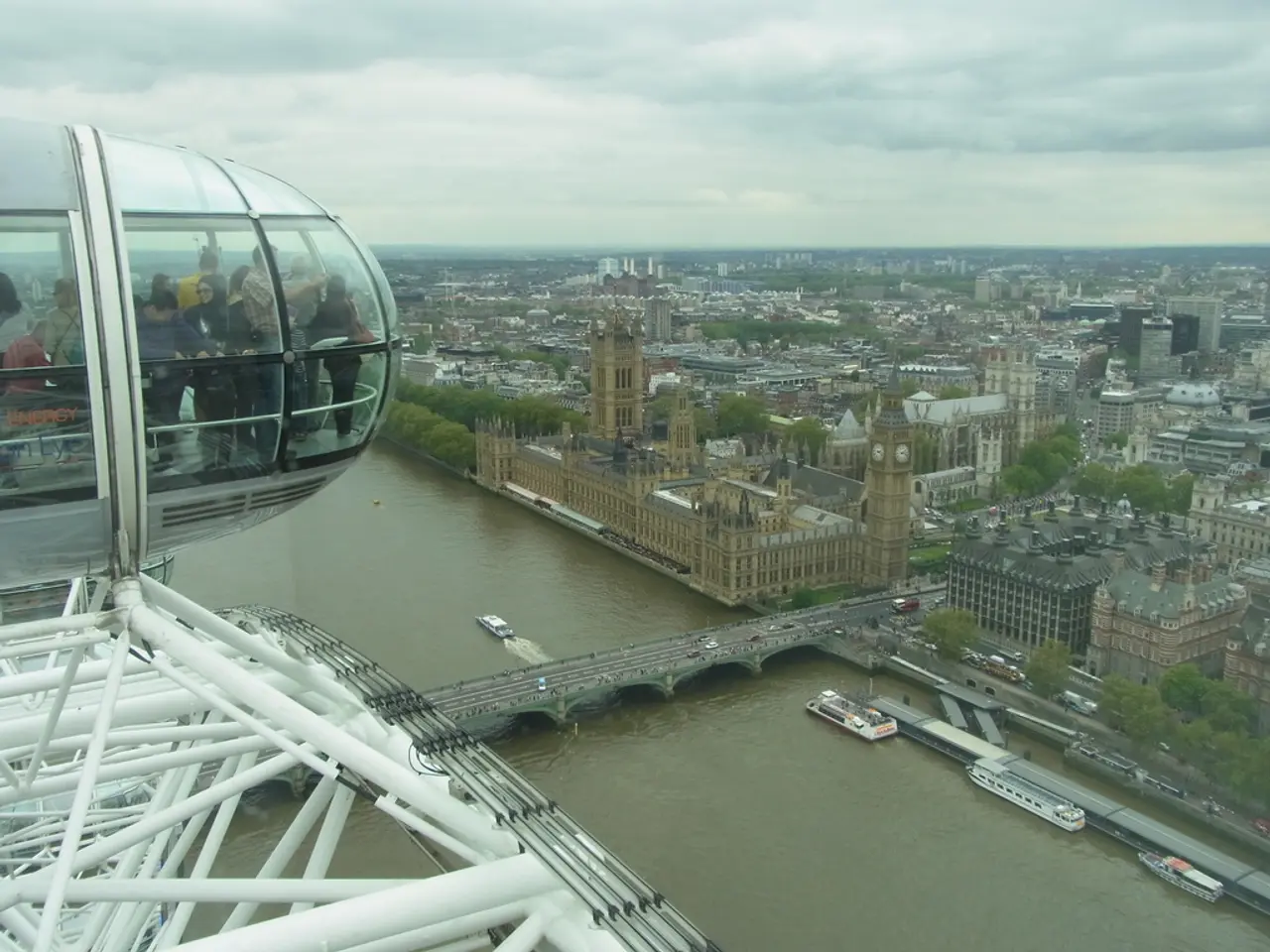Monetary policy adjustment: Interest rates lowered to 4% following a tight 5-4 decision by the Bank of England's board.
The Bank of England (BoE) made a significant move last Thursday, cutting its interest rates from 4.25% to 4%. This decision, however, was not unanimous, as the BoE's Monetary Policy Committee (MPC) faced a rare split, highlighting tensions in monetary policy direction.
The division stems from the challenge of managing persistent inflation pressures while supporting a softer economic outlook and a tightening labour market. Inflation is expected to remain "sticky," peaking around 4% in September 2025, which creates pressure to keep rates higher to control inflation. On the other hand, the UK economy shows some softening with stagnant growth and rising unemployment risks after recent payroll tax and minimum wage increases. Growth forecasts for 2025 were slightly improved to 1.25%, adding complexity to the decision.
The MPC's split vote was a first in BoE history. In August 2025, five MPC members voted for a 25 basis point (bps) cut, while four wanted no change, requiring two rounds of voting to reach a majority. Governor Andrew Bailey described the decision as "finely balanced" and emphasized that future cuts would be "gradual and careful."
The BoE is also contending with stress in the gilt (government bond) market and is considering adjustments to its bond sales program, adding uncertainty to monetary policy choices. The divided vote signals a fragile downward path for interest rates, reflecting caution about how far and fast to cut amid uncertain inflation and economic data.
In contrast, the European Central Bank has taken a more aggressive approach, cutting borrowing costs eight times since June of last year, more than the BoE. Sterling jumped by about half a cent against the U.S. dollar after the announcement, but British short-term government bond yields rose sharply, and stocks fell.
The BoE expects inflation to return to its 2% target in the second quarter of 2027, three months later than its previous forecast. Long-term growth forecasts remain little changed from the BoE's May report, with annual growth of just over 1% expected in the coming years.
The conflict between the weakening jobs market and rising inflation poses a challenge for the BoE's future moves. Four out of nine BoE policymakers voted to keep borrowing costs on hold, including Chief Economist Huw Pill. Clare Lombardelli, the deputy governor for monetary policy, voted against the interest rate cut for the first time.
In a statement, the BoE stated that the restrictiveness of monetary policy had decreased due to the reduction in Bank Rate. The BoE's economic growth forecast for the July-to-September period is 0.3%, up from 0.1% in the second quarter.
The BoE's decision to cut interest rates underscores the difficult balancing act it faces in navigating the UK's economic landscape, with high inflation, a softening economy, and a tight labour market. The MPC's divided vote reflects this complexity and the challenges ahead.
- The decision by the Bank of England (BoE) to cut interest rates was preceded by a rare split within the Monetary Policy Committee (MPC), with five members voting for a cut and four opposing, highlighting tensions in the monetary policy direction.
- The UK economy is facing some softening with stagnant growth and rising unemployment risks, yet inflation is expected to remain "sticky," peaking around 4% in September 2025, creating pressure to keep rates higher to control inflation.
- In a contrasting approach, the European Central Bank has taken a more aggressive stance on monetary policy, cutting borrowing costs eight times since June of last year, more than the BoE.




